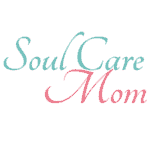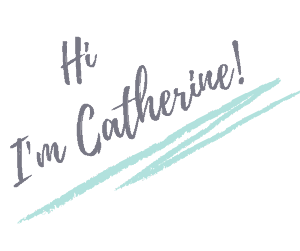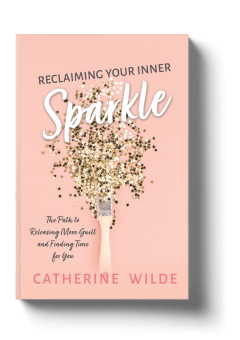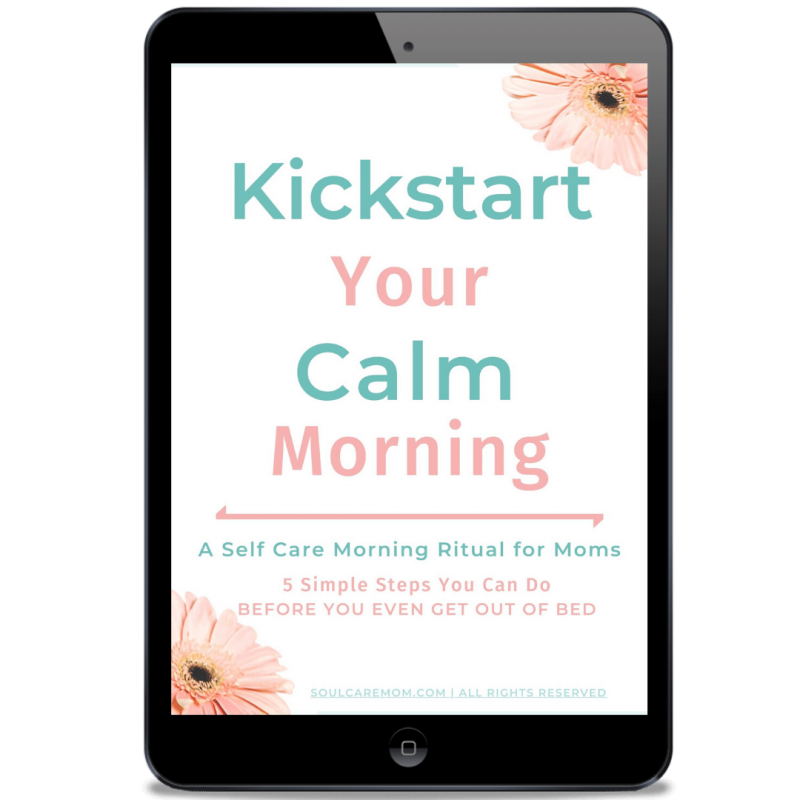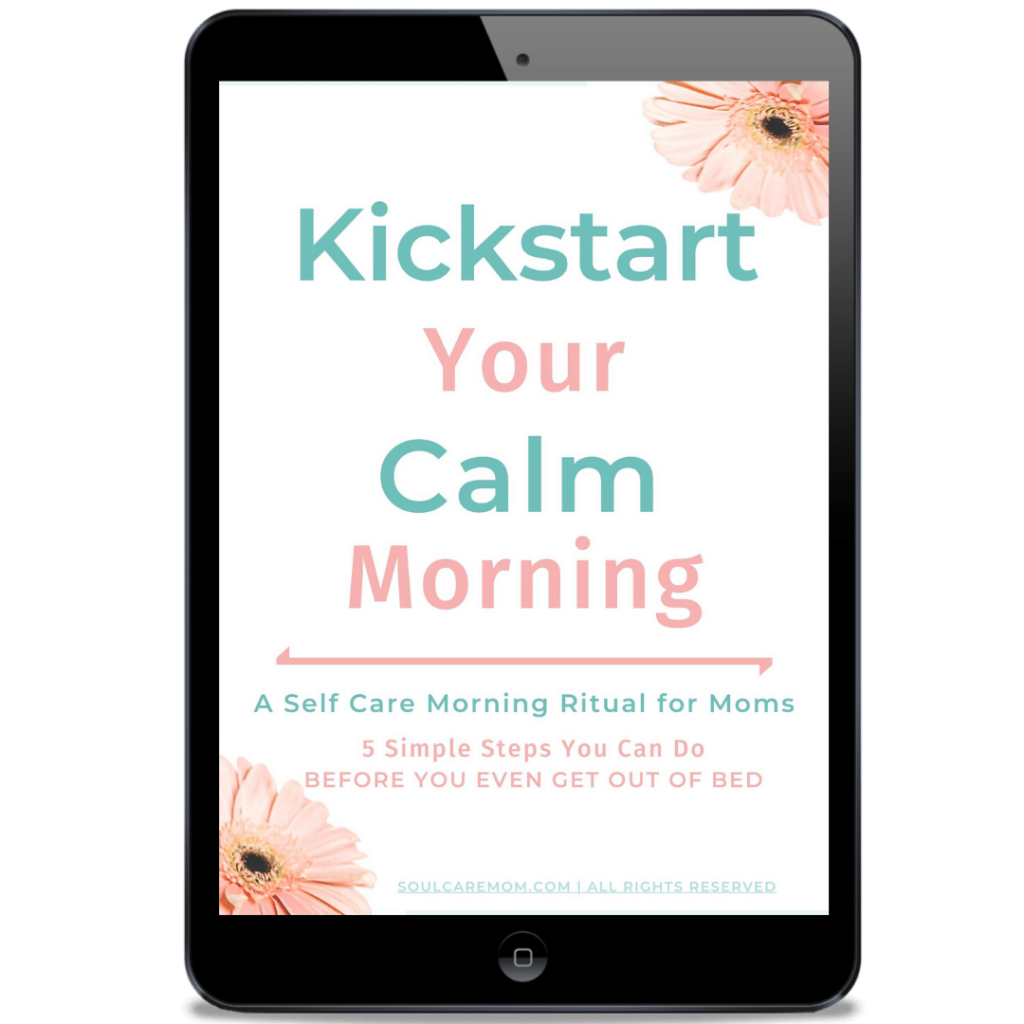[Feeling lost and stuck? Discover these powerful steps to hep you step out of your comfort zone and create a life you love!]
Do you wish you could silence your inner critic? My guest today on the Soul Care Mom Podcast is Michelle Pollock, a personal and professional coach and the creator of the Art of Compassionate Command.
And we chat about silencing your inner critic versus embracing your inner critic and the power of stepping out of your comfort zone.
And we dive into stepping out of your comfort zone examples. So you can finally say, I am ready to start stepping out of my comfort zone and creating a fulfilling life for myself. If you are ready to thrive in all areas of your life, to take steps towards your goals and dreams, you are not going to want to miss this episode.
You can also listen to this conversation on iTunes, Spotify, or your preferred podcast platform.
[Disclaimer: The information shared is from personal experiences and/or research. We’re not medical professionals. We share in hopes that it will help you tap into new insights and inspire you. Everything shared is for informational purposes only and is not intended as a substitute for medical advice. Always seek the guidance of a trusted health professional for your unique journey.]
Please Note: This post may contain affiliate links. This means that Soul Care Mom may receive a small commission if you click through and make a purchase, at no additional cost to you. Some episodes may contain paid endorsements and advertisements for products and services. And guests may have a direct or indirect financial interest in products or services referred to herein. We only recommend products and services that we believe in, trust, and would recommend even if we didn’t receive a commission. Please see disclaimers for more information.
Hi there, Soulful Mama. Welcome to the Soul Care Mom Podcast. I’m Catherine Wilde of soulcaremom.com. I’m a mom of three amazing kids, a Soul Care Mom Coach, and a yoga and meditation teacher.
I’ve helped hundreds of women, and I’m here to help you feel calm and find your unshakeable confidence as a mom. If you’re ready to stop living in survival mode and you’re ready to drop the mom guilt and overwhelm, this podcast is for you. Think of this as a lunch date with a girlfriend.
Grab a cup of tea and get cozy. It’s time to get honest and vulnerable and shift the traditional mindset around motherhood. Be sure to subscribe to be the first to know when new episodes are released. Get ready to grow and feel empowered as a mom. I’m here for you, mama. Let’s get started.
Catherine Wilde
Hi, Michelle. Thank you so much for joining me today.
Catherine Wilde
I’m so happy to be here. Thanks for having me, Catherine.
Benefits Of Stepping Out Of Your Comfort Zone
Catherine Wilde
I am so excited to chat with you all about how we can navigate our inner critic and learn to step out of our comfort zone. When we first connected, I was immediately drawn to your beautiful work. I absolutely love how you’re helping empower women so they’re not just participating in their lives, but they’re part of the transformation.
And before we dive into all of that amazing goodness, will you share a little bit about your journey with us? What has your journey been like with your inner critic? And how have you come to do the beautiful work that you do in empowering others?
Michelle Pollack
Great question. My inner critic was so loud, man. So I actually went to school for theater. From a very young age, I was convinced that I was going to be an actress. That was what I was doing with my life. Not just an actress, but I was going to be famous.
I was going to be a star.
And somewhere in my 20s, that confidence started to wane. My clarity around what I wanted from my life started to shift. And a lot came up for me around not doing the thing I said I was going to do.
I started to think, maybe this isn’t what I want anymore. And with that came a lot of shame and self judgment because there was this feeling of failure and feeling like, if I quit, I’m a quitter, rather than having this sense of, oh, as I’ve grown and gotten older, I want to do something different than I thought I wanted to do.
So that was like, around that time was the first time I really noticed that there was a voice in there that was reading thoughts and stories that weren’t necessarily true. When I let people know that I was shifting my focus, nobody else judged me. I was the one that had been judging myself. So I started to go in a different direction, and I went and I worked with some Broadway producers.
I was an assistant and then an associate producer on some Broadway shows. I worked on Avenue Q. I worked on La Boheme when Baz Lurhrmann did it. I had amazing experiences. I constantly felt like there’s something more for me out there. I felt stuck, like, is this all there is? Then I left New York and I went out to LA and I worked in television and I was surrounded by all these amazing people who were doing amazing things. I had friends who were producers.
I had friends that were Broadway actresses, corporate lawyers starting their own companies. And I just constantly felt like something’s wrong with me. And I just couldn’t get it out of my head of this can’t be all there is. And I finally started learning about myself and doing some personal development work and understanding that this voice that was creating my narrative in my head was selling me a bad rap.
And that I didn’t have to buy into that story and that if I actually looked at things from a different perspective and cultivated more of a sense of inner knowing that I could actually do a lot more than I was giving myself credit for.
I constantly had this ticking time bomb of you’re too old, you can’t shift direction, you don’t have the skills to do it. You have to go back to school if you want to actually learn to do X, Y, and Z. Why aren’t you as good as everybody else around you? All of these things would play like a ticker tape in my head on repeat all the time. And that was all I heard until I started to realize, until I started to learn.
I was given the knowledge that that’s not like that’s one voice, but you don’t have to buy into that stuff. And that’s not all there is. And so it was around the time that I started having kids, actually, that I started slowing down a little bit. And something about having kids really reconnected me with my gut and my intuition.
And when I went back to work after having kids, I was working in television and I was like, oh, something had shifted from I have to do this. I need to have success at this. And this is what success looks like. I’m going to have the corner office to, Oh, there’s a lot of other things now that I want for my life.
Michelle Pollack
I want to be around for my kids more consistently, and I want to be around for myself. I want to have both. How can I do that? What does that look like? And success no longer looks like the corner office anymore. So I had to take some time to figure out what success did look like for me at this new stage in my life.
And that led me down the path of like, oh, people have said to me a lot over the years, you’d be a great life coach. And I was like, a life coach? What’s a life coach? And then I actually started to recognize how much I loved personal development, what huge difference doing growth work and doing thought work had made in my life.
And, oh, this is possible to actually bring to other people to empower them and to let them discover what do they want their lives to look like. What does it look like for us as we grow, as we get older, as things change, giving ourselves permission to actually make changes and not have things have to be one way just because that’s how it’s always been.
Michelle Pollack
And so I decided to go and get certified as a coach. I decided to go and take one class. I was in that class for about three hours before I was like, Oh, my God. This is my thing. This is it. And that was in 2015, and here we are. So that has been my journey. It was really learning first for myself. I don’t want to feel this way anymore. I don’t want to be so hard on myself all the time.
I don’t want to be in a constant state of judgment of myself, which also led to judgment of others. I want to be less controlling, especially when I had kids. There were just these things about myself that I knew weren’t serving me. And at the same time, what I’ve grown to learn is that a lot of those things have a flip side that is really positive if you can lean into them and think of them in a different way.
And so giving women those tools to let them see things through that lens has just been an amazing gift and journey to me and I hope to the women that I work with.
Catherine Wilde
Oh, my gosh, I’m sure it is. And thank you for sharing that journey. I think there’s so much there were so many parts of it. I was like, Oh, my God. Yes, I can relate. I can relate. I can relate. And I’m sure moms listening to you can relate. Whether it’s your job or whether it’s becoming a mom, there’s those parts of us that we get disconnected from.
And so starting to be able to find what it is that lights us up again is so powerful and important. And it’s not one or the other. It’s not being a mom or taking care of yourself. It’s both. And like you were saying. And I love that.
So that inner critic, it really plagues so many of us so intensely. And it keeps us from taking care of ourselves, from ever prioritizing our needs, our wants, our vision for our life. And it provides mom guilt and all of those things. Yeah. So can we dive into the inner critic some more? It could be such a struggle, especially for moms. Can you share more about that?
Michelle Pollack
Yeah. So it’s so interesting because for so many of us, that voice, we’re like, Well, that’s just us. That’s just me. That voice I hear is just me. And we also don’t often realize how unkind we are to ourselves.
But when you actually start to listen to the things you say to yourself, one of the things I love to say all the time is, imagine if somebody was walking around like, when someone walks on your heels, gets on your heels, imagine if there was someone walking on your heels all the time saying the things to you that you say to yourself, you’d want to turn around and punch him in the face.
And yet we just accept those things when they come from us. Imagine if you heard your child saying those things to themselves, you would be horrified and so upset. And yet again, we just say, Well, that’s me. That’s just the thing I say to them. That’s just me.
And it’s actually not just who you are. Usually, the inner critic comes out around… Usually it’s stronger in one area of our lives, but for some of us, it’s present everywhere, either professionally, as a parent or a partner, in friendships.
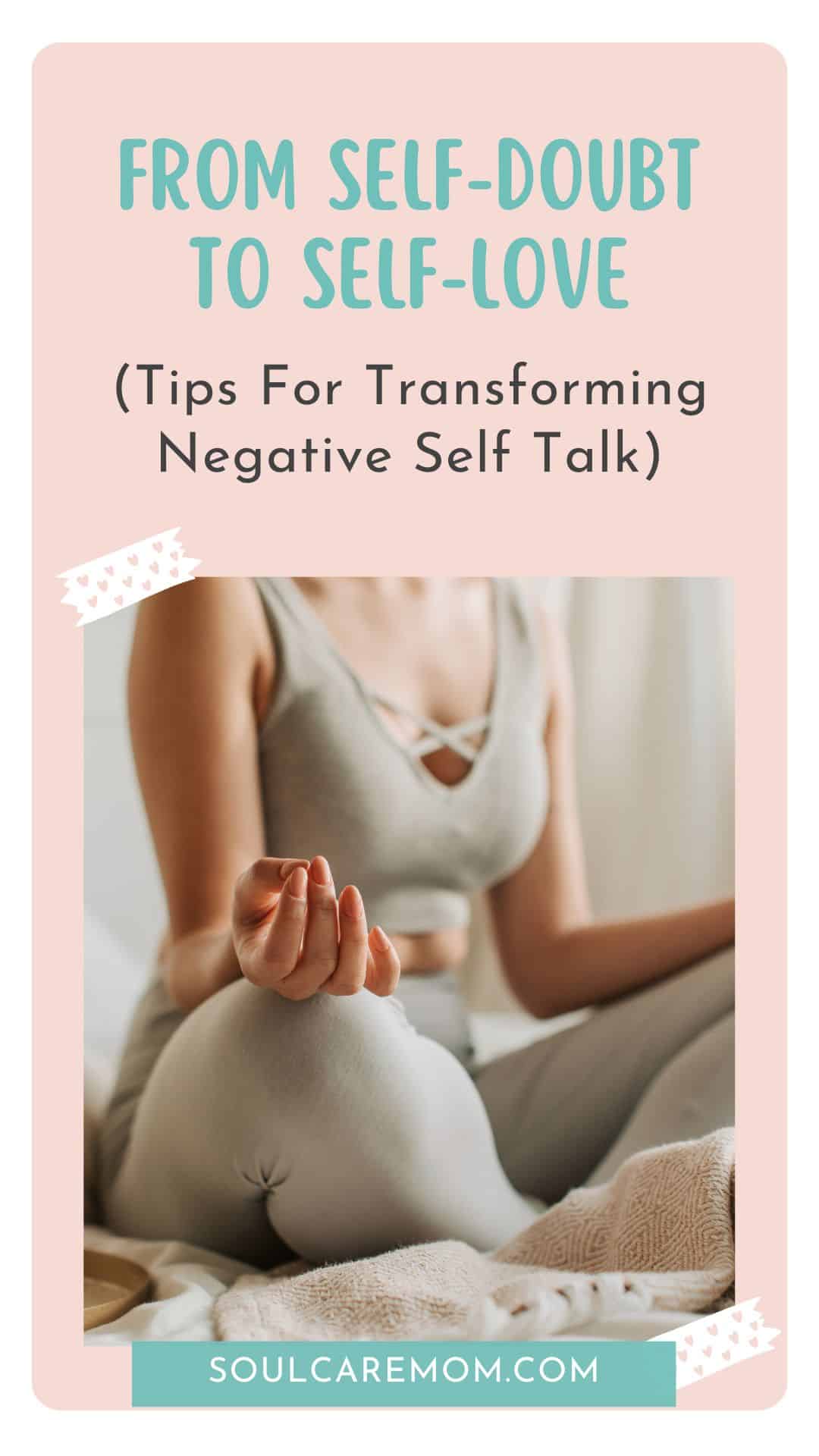
Negative Self Talk Examples & How To Change It
Michelle Pollack
Sometimes it’s about our body image or aging or what we look like. But it’s usually saying something along the lines of, “You’re not good enough.” or “Why’d you do it that way?” or “You shouldn’t do that. That’s too risky. “
A lot of times, especially professionally, when we want to take a risk, the inner critic will give you that, like, the idea that you’re not ready or you’ll be ready when you need to go get more training. It’s really interesting. There’s this statistic with LinkedIn and applying for jobs. Men will apply for a position even if they only have about half of the qualifications deemed necessary for the job.
Women won’t apply unless they have all of the qualifications. And so you can just imagine that’s another place where your inner critic is going, Oh, no, you don’t have those qualifications. So you’re not ready yet, or That job is not right for you. We don’t even give ourselves the chance.
And it’s really fascinating when you actually start to listen for that voice to recognize how often it’s coming up in your life. It’s so much more than you realize. 80 % of the average person’s thoughts are negative. 80%, that’s a lot.
Michelle Pollack
The things to listen for, to notice that are critical thinking are, I mean, that obvious self judgment, harshness, being mean, or telling you you’re not enough. That’s a pretty obvious one. But sometimes that critic can be pretty sneaky. Black and white thinking, so all or nothing. Most of the time there’s more gray, there’s wiggle room, there’s places to look.
So if you notice yourself being very all or nothing, that’s inner critic. Again, I mentioned that idea that you’re not ready. Oh, no, you’re not ready. That’s inner critic thinking. What’s another way?
This is a really good one. The one two punch where you might do something. Let’s say you’re giving a presentation and you have a critical thought about the way you gave the presentation.
And then you’ll get another thought of like, well, other people that have that experience are good at this. You should have that experience. So you beat yourself up first because you think you made a mistake or you didn’t do well enough. Then you beat yourself up again on top of it because other people that have the same level of experience that you have would be able to do it better.

Freedom From Your Inner Critic
Michelle Pollack
That’s another way in which the inner critic shows up. Those are a few examples of how you can identify that voice and start to listen for it. I always say that awareness around starting to hear that voice and recognizing it is half the battle. Because for so many people, like I said, it’s like, oh, that’s just me.
That’s just my voice. I’m just talking to myself. But if you listen, a lot of times you’re having a dialog with yourself and there’s another voice in there, too. For example, if you wanted to go for the job, there’s the voice that had you want to go for the job. Then there’s the voice that tells you you’re not ready. But there’s two voices there. We just tend to hear that critical one so much louder.
Catherine Wilde
Yeah, absolutely. It’s like that squeaky wheel gets the grease. It’s like the one that’s like, oh, this maybe needs attention right now. And so we miss out on the other, the intuition and the inner knowing. And I love it. You started out with, if somebody’s walking on your heels and saying mean things to you, how would you feel about that?
And we do it to ourselves. And that’s something to cultivate. What would you say to a friend that was having a hard day? Or what would you say to a friend that brought up that thing to you? And can you be that friend for yourself?
Michelle Pollack
And so there’s some steps in between that because usually… So the first step and the easiest way to start to separate yourself from that voice, which is how you start to recognize that and really hear the other voices that are present is to just label that voice as your inner critic.
So rather than going, Oh, you hear yourself say, I’m not ready for that, or I did so badly at that. You pause and then label it as your inner critic. My inner critic says, I did really badly. What do I think? So there’s a difference between judgment and discernment.
So you might be able to go, if you step aside from that, Oh, my gosh, I screwed that whole thing up. My inner critic says I screwed that whole thing up. I did screw up that little piece, but all in all, it was pretty good. I wish I had done this differently. I’d like to do this differently for next time.
But that one part was just a little part, right? Rather than, I screwed the whole thing up. It was so terrible. When you separate yourself from that voice, it gives you a little bit more ability to see the full picture of things or a bird’s eye view perspective rather than up close and personal of like, oh, all they’re going to remember is that I had spinach in my teeth when likely they didn’t even notice the spinach in your teeth.
Catherine Wilde
Right. Yeah. That’s such a powerful point. If we aren’t our thoughts. We are the awareness of our thoughts. So when we can get that bird’s eye view, then we can see, Oh, this is what’s going through my mind. And is it what I want to think? Is it where I want to go? Do I want to get lost in that? Or do I have a different way to… Yeah. I love that.
Michelle Pollack
Exactly. And there’s so many things that shape that inner critic voice. And one of them is the society we’ve grown up in. There’s a lot of patriarchal culture that really forms women’s views of themselves. And so it’s important to have awareness around that.
Part of that mom guilt comes from the fact that as women, our value at one time in society came strictly from taking care of other people.
That was how we were valued. We couldn’t have a job, we couldn’t own land, we couldn’t have a credit card or bank account, we couldn’t vote, we weren’t allowed to have physical strength. We were seen our role in society was to care for others. So while we have evolved in today’s day and age, believe it or not, our DNA, the DNA of women is still passed down from generation to generation that feels that our value is in caring for and taking care of others.
And so that’s one of the things that forms that critical voice. Your culture. Different cultures have different belief systems and ways the family you grew up in, there might have been a very specific belief system in that family, and that helps to shape that voice.
Michelle Pollack
So some of it comes just from our experience in the world, but some of it is societal, some of it is cultural. And women in particular definitely deal with the idea of don’t brag. There’s definitely something to women of being modest. So women have trouble because of that, what I noticed a lot of times is women have trouble actually really owning their strengths and the value they bring.
Because if they say it out loud, they’re not being modest. So there’s so many different things that play into your personal critical voice, and most of us have more than one. Somebody’s judgmental voice might be a very different voice than that people pleaser voice.
But just starting to listen for the voices that maybe are holding us back or putting us down or telling us no, and being able to actually get curious about what is possible rather than why is this not possible?
Catherine Wilde
Right. Yeah. We stop ourselves before we even have a chance. Thank you for sharing that.
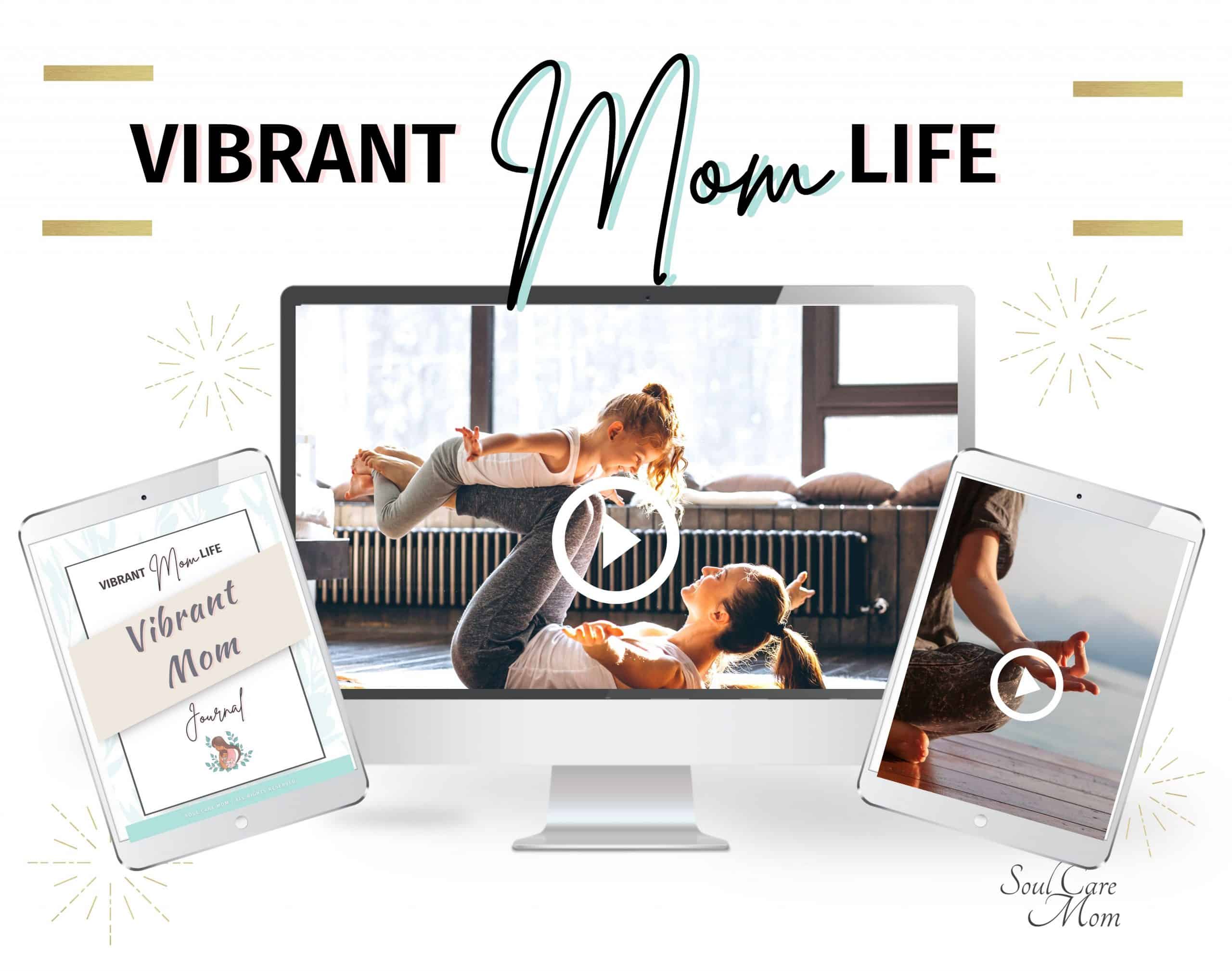
Do you feel overwhelmed and anxious?
Do you wish you could stop losing your temper with your kids and just have more fun as a mom?
Do you crave finding more time to do the things you love without feeling guilty?
I get it, mama. I’ve been there.
That’s why I created Vibrant Mom Life. Imagine what life would look like if you could finally get out of survival mode, consistently find time for yourself, and be the calm, present mom you’ve always wanted to be. This membership will help you step out of anxiety and overwhelm and help you find time for yourself without the guilt.
Inside Vibrant Mom Life, you’ll find monthly themes that will help you shift your mindset, get out of survival mode, and find time for the things you love, all while being the mom you want to be. Plus, you’ll find guided meditations and yoga practices that will help you effortlessly infuse your days with self care.
I know that some days are harder than others, so you’ll even find a library of short and sweet guided affirmations so you can simply press play and reconnect with your inner calm in just minutes.
Join Vibrant Mom Life today by going to soulcaremom.com membership. So you can stop running on empty and truly enjoy mom life.
I can’t wait to welcome you inside, mama.
Catherine Wilde
Okay, so we’ve talked about… I love the examples you shared because the examples can help us to bring that awareness to what we’re saying to ourselves. So thank you for that. So we’ve talked about what the inner critic is, how we can start to become aware of that.
So another part can be this perfectionism. Can we explore a desire to be perfect and giving ourselves permission to take that messy action? What do you have? What tips do you have for us around that?
Michelle Pollack
Yeah, sure. So yes. Perfectionism has gotten such a bad rap in our society because it is paralyzing for so many women. One of the ways I tend to look at it, most people who are perfectionists have a really high standard of excellence.
And that’s a beautiful quality to be a hard worker and have a high standard of excellence and to continue to strive and to want things to always be wanting to do better and do more.
There’s something really valuable in that. And there’s a difference between going for excellence and striving for perfection, which is, as we know, it’s just not attainable. Your vision of perfection might be totally different than my vision of perfection. Who’s deciding what perfect is and what perfect means? And the truth is, when we aim for perfect, usually that stops us from even getting started.
Procrastination, Perfectionism & Stepping Out Of Your Comfort Zone
Catherine Wilde
That procrastination that you were talking about.
Michelle Pollack
Yeah. And the other part is perfectionism, the idea of it needs to be perfect. It creates this mentality that if we don’t get it right or exactly right the first time, we’re a failure. And that’s part of what stops people from getting started.
Like, what if I screw it up? What if it doesn’t go well?
And the way I like to view that instead is that everything in life is a science experiment. Imagine if the scientists and the doctors that were working to cure cancer gave up when they failed. How long have they been trying to find a cure for cancer? How many years?
It’s been years and years and years. But every time they, quote, fail, it’s just information to get them closer and closer. And so when they have a success, along with their failure, they take it forward to make the next iteration better and better.
But imagine if our scientists, when they had experiments, gave up when it failed. Experiment in and of itself is set up to maybe work, maybe not. And let’s see what does and let’s see what doesn’t. So I love to reframe trying new things in that way so that you give yourself permission to actually explore and discover and get curious without the pressure of it needing to be perfect that first time.
Michelle Pollack
Most people who have what we view as great success have had tremendous failure along the way to that success. There’s no such thing as an overnight success, as we all know.
And we talk about this all the time. But when we look at things for ourselves, we aren’t so willing to let it pertain to us in the same way. So if you can allow yourself to be messy, let it be messy, let yourself try and fall down and get back. Again, imagine if your child who is learning to walk had to get it perfect the first time.
Catherine Wilde
That is just what I was thinking. Yeah.
Michelle Pollack
As moms, that sounds ridiculous. Anything our kids do, we encourage them to try again, try again until they finally get it right. I remember when I was a kid learning to snap, I got blisters on my fingers trying and trying and trying. Imagine if we just did it one time and it didn’t work and I failed, or a baby fell down and just was like, I’m never going to try to walk again. Yeah.
If we could give ourselves some of that same grace and allow ourselves to sometimes take on the role of being a beginner when we’re trying something new. Imagine what it’s like when something doesn’t go the way we want it to, rather than, yes, experience disappointment.
Allow yourselves to have that full range of emotions, but then go, Okay, what did I learn here so that I can move forward in a new way and do it differently next time?
Rather than, I’m a failure and that’s it, which is so often how… And it really is how you view yourself creates such a trajectory for where you’re going to go next in your life. So if we can give ourselves a little bit of the grace that we give our kids, that we hope our kids will give themselves, if we can find some compassion.
And the other thing is if we can remember that often that critical voice is trying to keep us safe. It’s just trying to protect us because it wants to keep us safe. Our brains have not evolved from caveman days. When that voice comes up, it’s usually because we’re going into fight or flight. In caveman days, we were running from a sabertooth tiger, or we were fighting off the enemy.
Our lives have evolved, but our brains haven’t. Our bodies still think that we’re fighting off a sabertooth tiger. And it goes into that fight or flight response. If we can have some compassion for that part of ourselves that’s trying to protect us from quite literally dying, it thinks that that’s what it’s protecting us from. And that’s another way to deal with your inner critic, to go, Okay, I see you. I thank you. I’m okay. I’m safe.
Sometimes it goes deeper than that. Our bodies have a physical response too. And so we need to actually do some work with our central nervous system to help us actually feel like we’re truly safe rather than the panic that our nervous system goes into in those moments.
Michelle Pollack
So it’s multifaceted, right. But the first step truly is that awareness of, oh, my inner critic says, and hearing that and then being able to go, oh, there’s another voice there, too, that has something to say.
Catherine Wilde
Yeah, I love that so much. Okay, so if there’s a mom listening right now and she’s feeling really inspired to start becoming aware of this inner critic. And she’s saying, I’m ready to take some messy action, but you’re she’s feeling a little overwhelmed, maybe she’s feeling a little overwhelmed.
Maybe she’s feeling that response in her body. She’s feeling that anxiety. What would you say to her? How would you help her take that next step to step out of that comfort zone, to step out of that fight flight freeze mode?
Michelle Pollack
Good question. So the first step when you do feel that feeling physically in your body, so interesting because we have been trained to ignore that. A lot of times, we’ve been taught not to listen to our bodies. So the first step is actually to connect with your body, actually acknowledge what you’re feeling rather than trying to ignore it and to breathe.
One of the things I love to have my clients do is put their hands on their heart center. And if you do that and you put just a little weight there, you notice it almost feels like a weighted blanket. And just take a few minutes and take a couple of deep breaths into that feeling in your heart center and remind yourself that you’re actually safe right now in that moment.
What happens when you breathe and you focus solely on the sensations of your body is that the activity in your brain shifts from that area that houses your fight or flight to the part of your brain that is more communicative, compassionate, serious, and courageous.
It just allows you to slow everything down so that often when we’re in fight or flight, we’re like, fast, fast, fast. That’s often what we’re feeling in our body too, right? This anxiety, and then we get very reactive around that. When you notice that, I mean, I feel it in my body when I even talk like that, right?
I can feel So when we take that moment to actually pause and to slow down and to breathe into ourselves and to remind ourselves that we’re safe, like, I’m safe, I’m okay, right now, here in this moment, I am good. The greatest question, I think, to ask yourself is, what’s one small step that would make a difference for me right now? What’s one small thing I could do that would make a difference? It doesn’t have to be this big… You don’t have to decide, I’m writing a book.
But you could decide, I’m going to want to sit down at my computer or with a journal, and I’m just going to write for five minutes every day. I’m going to find five minutes every day, and I’m going to try to do it at this time because I know I will have the space at this time. Or for some people, if you’ve ever listened or read James Clear’s Atomic Habits, these talks about if you want to create… don’t know how I’ve gotten on writing, but let’s just use it as an example.
If you want to create a writing habit, set a time that you’re going to sit down at your computer every day and open your computer. For the first two weeks, just get in the habit of sitting down and opening your computer. You don’t even have to write. My coach loves to tell the story of one year, she and her husband both decided they were getting in shape. It was like a New Year’s resolution thing, and they both decided they were getting in shape.
And he said, I’m just going to put on my sneakers and go to the gym every day. I’m just going to put them on and go to the gym, and then I might come back home. She had this whole routine that she was going to do. Guess who stuck with theirs? He ended up getting in great shape because he didn’t have any pressure. So if we can alleviate, that’s part of the perfectionist thing, right? If we can alleviate the pressure of like, I have to go from A to Z. No, how about you go from A to A and a half? A to B at the most.
Just one small thing that you can do that will make a difference for you in whatever area you’re feeling pressure or you’re feeling desire or even thinking about moms who want to take a little bit of time for themselves. What’s one small thing that would make a big difference? Because for a lot of moms, there’s not balance, but could you ask for a little bit more help? Could you ask for help once a day on something you’re not used to asking help for? That’s a great example of that one small thing that might make a difference.
Catherine Wilde
I love that. Yes. So many of the things you’re saying, like the placing your hand over your heart, that’s something I do with my clients, too. It’s this physical connection. We don’t connect with ourselves enough. And that’s a lot of the feeling lost and that feeling like we’re stuck.
A lot of that happens because we’re not tuning in. So I love that. And the breath, it really helps to bring us into this moment right out of the head and really here and now out of the mind chatter and the problems that we’re creating right up here and seeing what’s really happening in front of us. I love all of that. The other thing that you had mentioned to me was that you focus on values. So values is a guide for living a fulfilling life. Can we explore that? How can we tap into our values to help us thrive?
Michelle Pollack
So it’s really interesting. One of the things I think a lot of us don’t necessarily know, we think we know what our values are because you think of values and you go, Well, kindness. And there’s very standard values that a lot of people live by or a lot of people think they live by.
There’s so many values to choose from. And when I start to really dive in with my clients to get clearer about what values are, it’s really fascinating for them to recognize, oh, I have this value of freedom that’s fighting with my value of security. How do we create a life where they both get to have some presence? Or, I once had a client who had a value of wealth and she had a lot of shame around that. Well, why do you think she didn’t have the ability to live into that value?
Because she was struggling so much to really own that wealth was important to her. And the reasons why wealth were important to her were not material shallow. There was a lot of depth to why that was important to her. So it’s really important when we’re getting curious about our values to try and really turn off that judgment and look at like, what do we want for our lives?
How Self Care Will Help You Step Out Of Your Comfort Zone & Live Your Best Life
Michelle Pollack
What is most important to you in your life? What fills your cup? Another way to recognize what’s really important to you is to look at what drives you crazy. So if people being late drives you crazy, that points to a value probably of possibly reliability.
It might be really important to you. Or like I stated before, if you notice that you have a lot of anxiety around finances, usually that points to a value of security. It’s really important to you to feel safe and secure and to know. And that means probably, depending on what your other values are, but maybe you don’t want to become an entrepreneur.
That might not work if you’re looking to live a life aligned with your values. Now, don’t anybody who’s listening to this, take my word for it. Just because you have a value of security doesn’t mean you can’t be an entrepreneur. But it is all of them. When you look at all your values together and you know what’s most important to you to look at them and go, Well, this is most important in my life right now, and this is most important in my life right now, and am I really living that value?
Michelle Pollack
What does that value mean to me? The way I define security might be totally different than the way you define security, Catherine. The way I define reliability might be totally different than the way you define it. Relationships are a value. Friendship is a value.
Authenticity, integrity, my definitions for those things are how I feel about them. If I had a lot of my clients have connection as a value, each one of their definitions for connection is a little bit different. So recognizing what does that mean to me? And then looking in my… If I look at this value and the big picture of my life, how much am I living in my life right now? Is it a nine? Is it a five? Is it a two? And usually when we feel out of alignment or unfulfilled, it lines up with a value that we’re not actually honoring in our life.
Catherine Wilde
So true. Yeah. And I love it. At the beginning of our chat, you mentioned how what was success to you isn’t anymore. And just like that, what is important in this season of your life? I think there can be that fear of missing out. Like, oh, if I stop saying yes to these things, I won’t have that opportunity later. But what’s important to you now will help you to live that fulfilled life and will open up doors to what’s meant for you.
Michelle Pollack
That’s so spot on. When I was looking at going back to work in entertainment, there was a job that I was up for, and I really loved this woman. And she said to me, she was like, I really need you to think about this. I know what it’s like to have little kids at home. And she said, I really, really like you. I want you to make sure you can commit to this. this time, what this job looks like.
And I took the weekend and I wrote her back and I said to her, This is a really hard note to write to you, but you’re right. There would have been a time where I would have been happy to eat, sleep, and breathe my work.
But now I can eat it, or breathe it, or sleep it, but I need the other two for my family. And it was just my values had shifted. And that was a moment where I recognized that and I had to say, Okay, maybe I need to look in a different direction for what I want next, because career is not the only thing that’s important to me. And success in a career, success now includes being a mommy.
Michelle Pollack
And so not only being a mom… And by the way, if that’s what is most important to you and you want to focus on your children, wonderful. Just choose it. There’s a difference between choice and life happening to you. And there was a time where I was home with my girls and I was choosing it, and it felt great. And I noticed really, there was a big shift in me when I didn’t want to choose just that anymore. And then it became clear, okay, but I still want access to that.
So knowing those and acknowledging those shifts and those changes and having awareness around them, again, a lot of times our bodies give us those signals before our brains do. And to bring it very full circle, a lot of times our brains will talk us out of those feelings of what we want. It’s so easy.
When I was writing that email, there was a part of me that was like, you’re giving up all this opportunity. You’re never going to… What are you going to do with your life? You’re never going to make anything of yourself. I had all that chatter, but I definitely had a stronger feeling of this is not what’s right for me right now in my life, and I know that.
Catherine Wilde
Right. Yeah. And you’re so right. Our bodies hold so much wisdom. So that’s another place to tap into when your mind starts to chatter. Yeah. That’s so good. Thank you so much. I always love to ask this question because every guest has been on this beautiful life journey and with ups and downs and all the things. So if you could go back in time to maybe when you first became a mom or when you first started to deal with it, realized that you had that inner critic, what would you tell her now? What would you tell Michelle?
Michelle Pollack
That’s such a great question. I love it so much. And I would go back even further, I think. One of the things that acknowledging my inner critic helped me do was cultivate grit and resilience, which is not something that when I was performing, I don’t think I had it.
If I didn’t get it quickly, there wasn’t a growth mindset. There was a very fixed mindset. So I didn’t have the ability to keep going, keep going, and keep going. It was too hard for me because I had the voice telling me, Well, maybe you’re just not good enough. Well, maybe you’re just not good enough. Even though I’d gotten into college for performing and I’d performed throughout my… I couldn’t be happier with the way my life has gone.
But I am curious what would have been different for me during that time of my life if I’d had that belief in myself that was louder than that critical voice that went. Because performing is tough. Any actor, a creative person will tell you, you have got to be willing to be knocked down 150 times because the 151st is the one that’s going to send you on your way.
But the critical voice every time I got knocked down, even when I had successes, and this is an interesting statistic also, you need five positive experiences for every one negative experience. So I’d have five great auditions where I’d get a call back in this and I’d get closer and then I wouldn’t get it and that erased… That critical voice just got louder and louder. And I wish I’d had the ability to… I wish I’d known about that and how to talk to myself and be kind to myself then.
Catherine Wilde
I love that so much. I think, yeah, for sure that’s still a journey that I’m on. More compassion, more grace.
Michelle Pollack
Yeah, I spent a lot of my 20s beating myself up and looking at what was wrong with me rather than what was right. The really empowering thing about recognizing your inner critic is also the ability to take control of the reins a little bit more and say, This is how I want my life to go.
What do I need to do to get there? Which didn’t come to me until I was in my 30s. And what a great gift that would have been to be able to know that at a younger age. And maybe that was my journey, and that’s the journey we’re all on. But that’s what I would want to tell my younger self is you don’t have to listen to that voice, and you don’t have to be perfect at everything right away and you don’t have to have a success immediately, just keep going and explore what you really desire and what makes you happy.
Catherine Wilde
I love that. What a beautiful note to end on. Thank you for sharing all of this. Can you let us know where we can find you online, where we can connect with you?
Michelle Pollack
Absolutely. So you can find me on my website at MichellePollack.com, and you can find me on Instagram @MichelleEPollack. And I have a great resource that can take you even deeper into this inner critic work. So that’s available on… If you go to my website, you can get access to that as well. And through my Instagram. That if you’re curious and you’d like to take this work even a little bit deeper, that’s available to you in both of those places as well.
Catherine Wilde
Perfect. I will include all of that in the show notes. Thank you again for sharing your journey. Thank you for sharing your wisdom and for empowering us today. I just loved this conversation.
Michelle Pollack
Awesome. Thank you so much for having me. This was really fun.
Ready To Start Your Morning Feeling Your Best!
Thanks for joining me, Mama.
I’m over here smiling from ear to ear and giving you a big virtual hug. I love spending this time with you. You are amazing for showing up and carving out this space to nourish your soul.
If you are loving the Soul Care Mom Podcast, be sure to subscribe and leave a review.
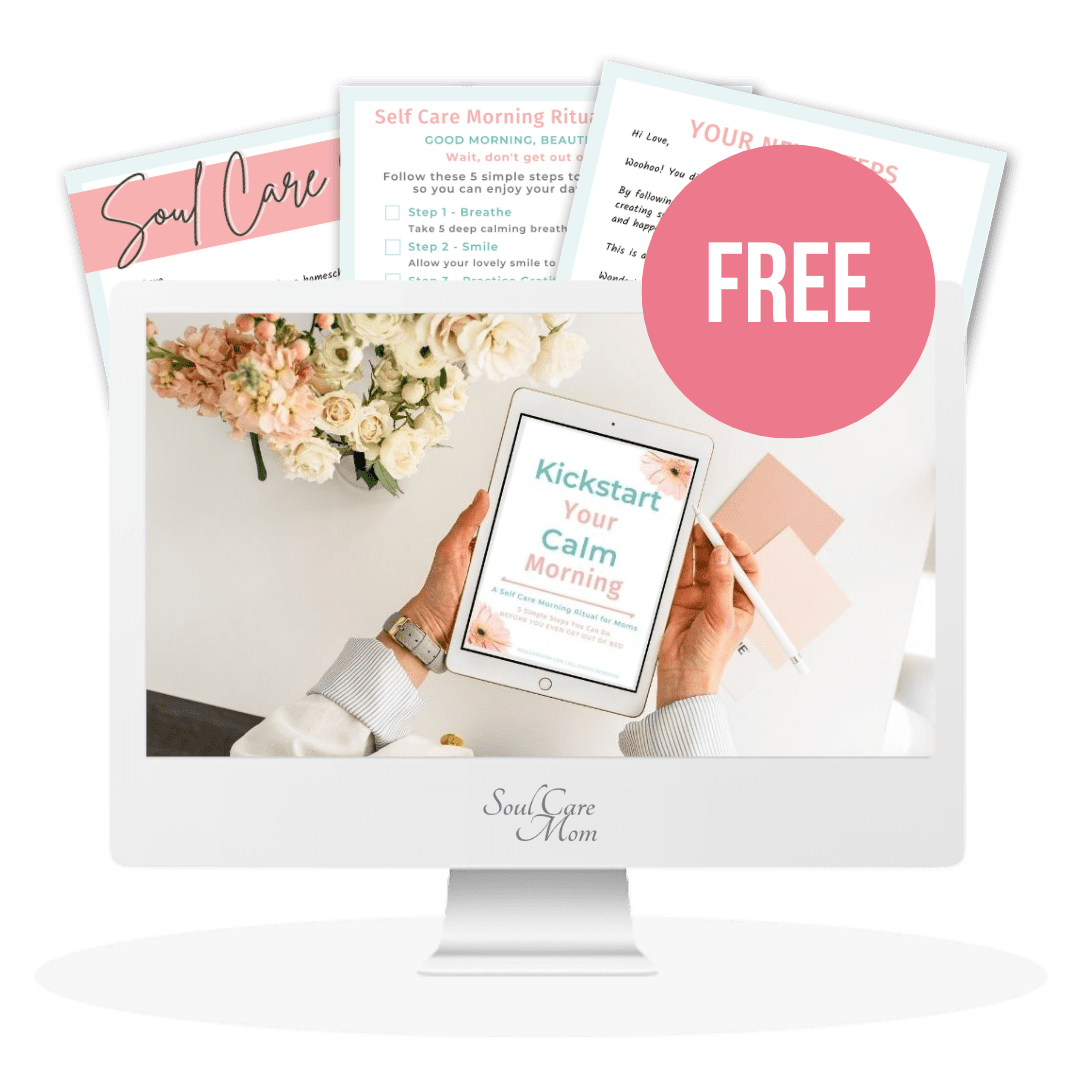
And if you are ready to start your mornings feeling calm and energized and get to kickstart your calm morning guide, a self care morning ritual for moms as a free gift when you join the Soul Care Mom community.
Click the button below and enter your email address to get your free gift and start feeling like a calm mom today.
Sending you so much. Love, Mama.

Save This Soul Care Goodness For Later

